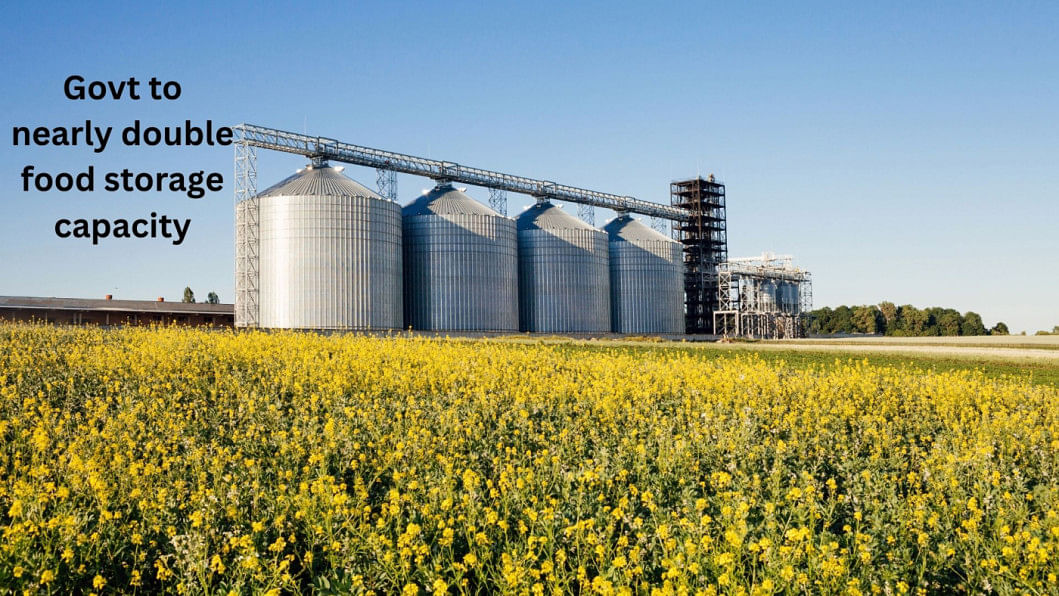Govt to nearly double food storage capacity

The interim government has planned to nearly double its public food storage capacity to 37 lakh tonnes in the next fiscal year.
The aim is to strengthen food grain management so that the government can better intervene in the market to stabilise staple prices and increase distribution among low-income people under various social protection schemes.
Experts said the government's ability to intervene in the market would improve if it is able to successfully implement the plan.
In his budget speech, Finance Adviser Salehuddin Ahmed announced that an action plan has been adopted to enhance food warehousing capacity and strengthen institutional capability in food grain management in the upcoming fiscal year.
Food security is a major concern for this densely populated country, and reducing inflation and ensuring food security are among its main priorities, he said.
Currently, Bangladesh has the capacity to store about 22 lakh tonnes of food grains, said Md Mahbubur Rahman, director for the Movement, Storage and Silo Division at the Directorate General of Food.
The government has taken the initiative to expand storage capacity as public food distribution under various programmes has been increasing gradually.
The government distributes food grains through open market sales and food-friendly programmes.
As of May 31 of the current fiscal year, the government distributed 30.30 lakh tonnes of food, whereas the target for the full year was 34 lakh tonnes.
The figure stood at 29.07 lakh tonnes for the same 10 months of the previous fiscal year.
The interim government aims to increase food grain distribution to 36.6 lakh tonnes in the coming fiscal year of 2025–26, according to the national budget documents published by the finance ministry.
The government has allocated Tk 20,538 crore for the distribution of food at subsidised rates, up 13 percent from a revised allocation of Tk 18,126 crore.
Agricultural economist Jahangir Alam Khan said the production of rice, potatoes, maize, onions, and fruits was increasing every year in the country.
Therefore, it is necessary to develop suitable storage infrastructure in various regions to preserve these products, he said.
A storage capacity of at least 50 lakh tonnes is required for preserving only paddy and rice, he added.
However, if the government implements its plan to build warehouses with a capacity of 37 lakh tonnes, its ability to intervene in the market will improve, he said.
At present, the market is largely controlled by businesspeople, not the government, because traders have the capacity to store goods and can manipulate the market as they wish, he added.
He also said that when the price of any commodity suddenly rises in the market, the government can stabilise the situation by releasing its reserves into the market.
In Bangladesh, the government needs to store at least 10 percent of the food grain produced.
Accordingly, a storage capacity of at least 50 lakh tonnes is necessary, he added.

 For all latest news, follow The Daily Star's Google News channel.
For all latest news, follow The Daily Star's Google News channel. 



Comments